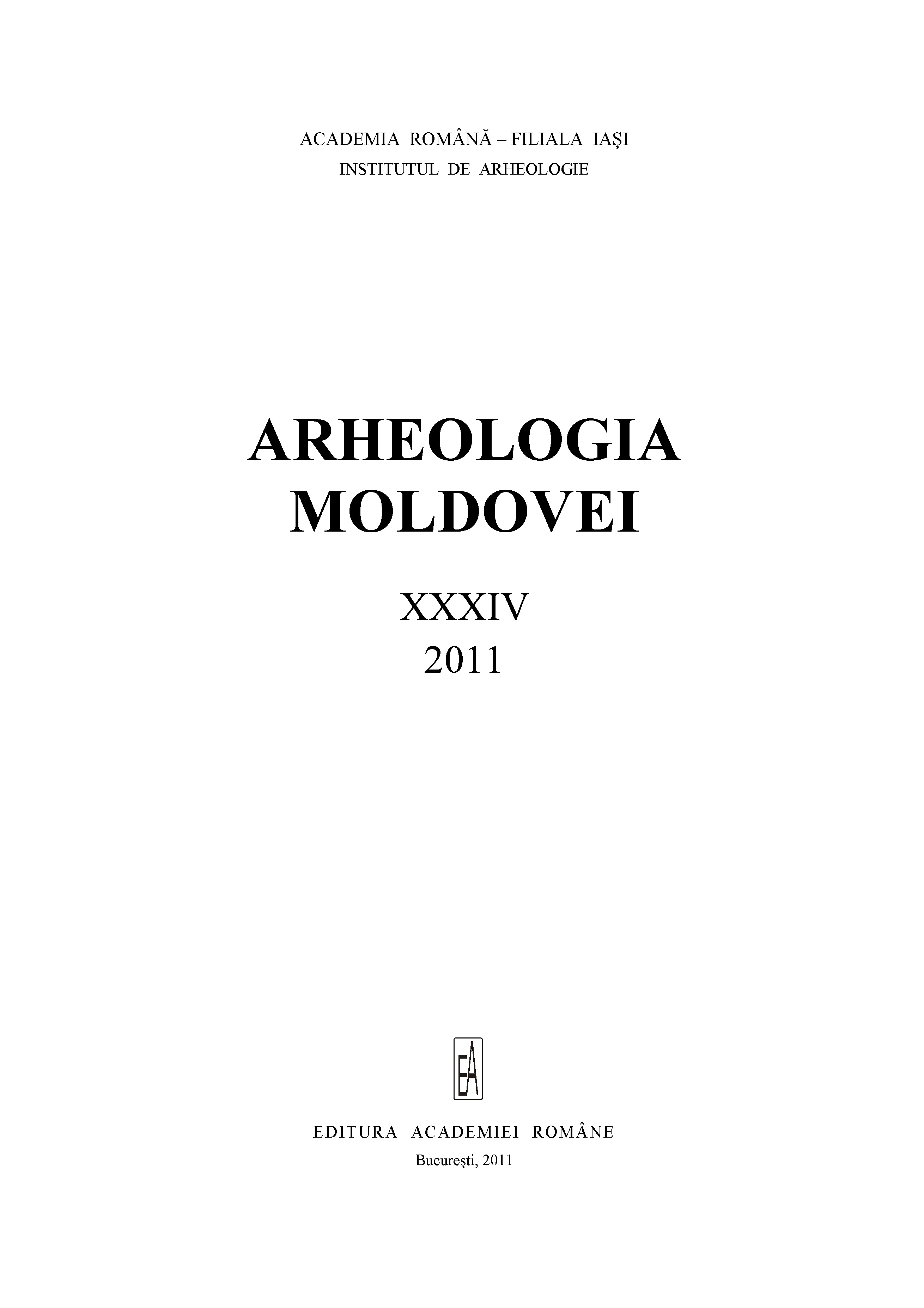
We kindly inform you that, as long as the subject affiliation of our 300.000+ articles is in progress, you might get unsufficient or no results on your third level or second level search. In this case, please broaden your search criteria.

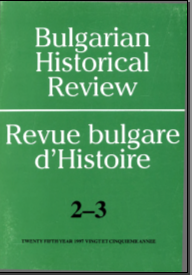
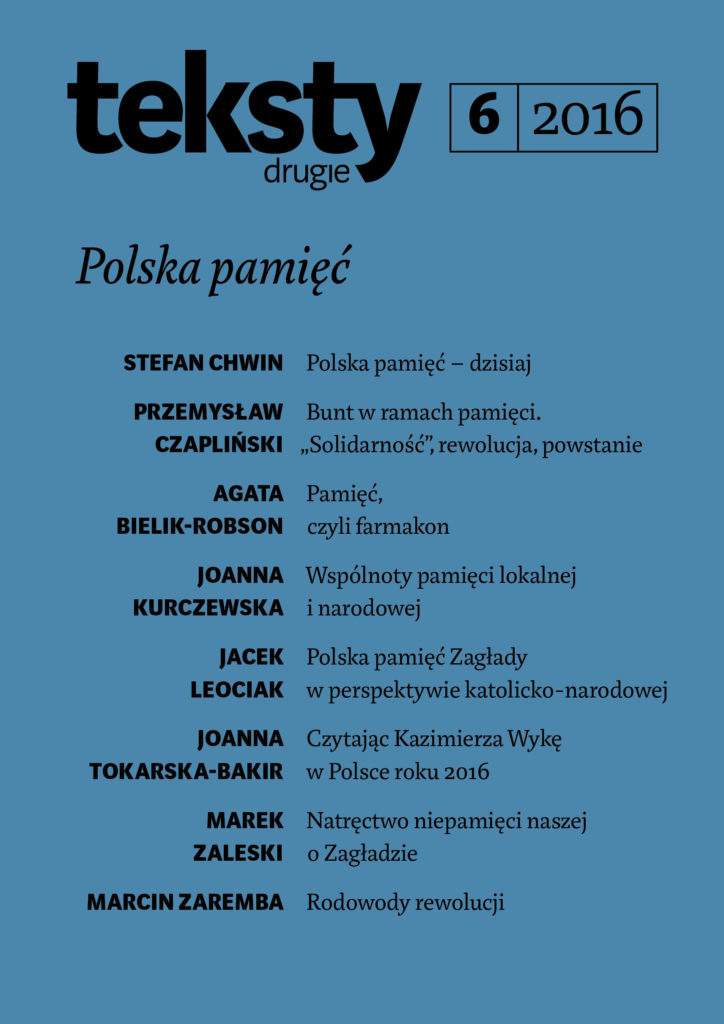
Review: Magdalena Sacha, ‘Gdyście w obóz przybyć już raczyli…’. Obraz kultury lagrowej w świadectwach więźniów Buchenwaldu 1937-1945 [‘When You Deign Come to the Camp…’: The Image of Camp Culture in the Testimonies of Buchenwald Prisoners 1937-1945]; Bydgoszcz/Gdańsk: Instytut Pamięci Narodowej. Komisja Ścigania Zbrodni przeciwko Narodowi Polskiemu, 2014.
More...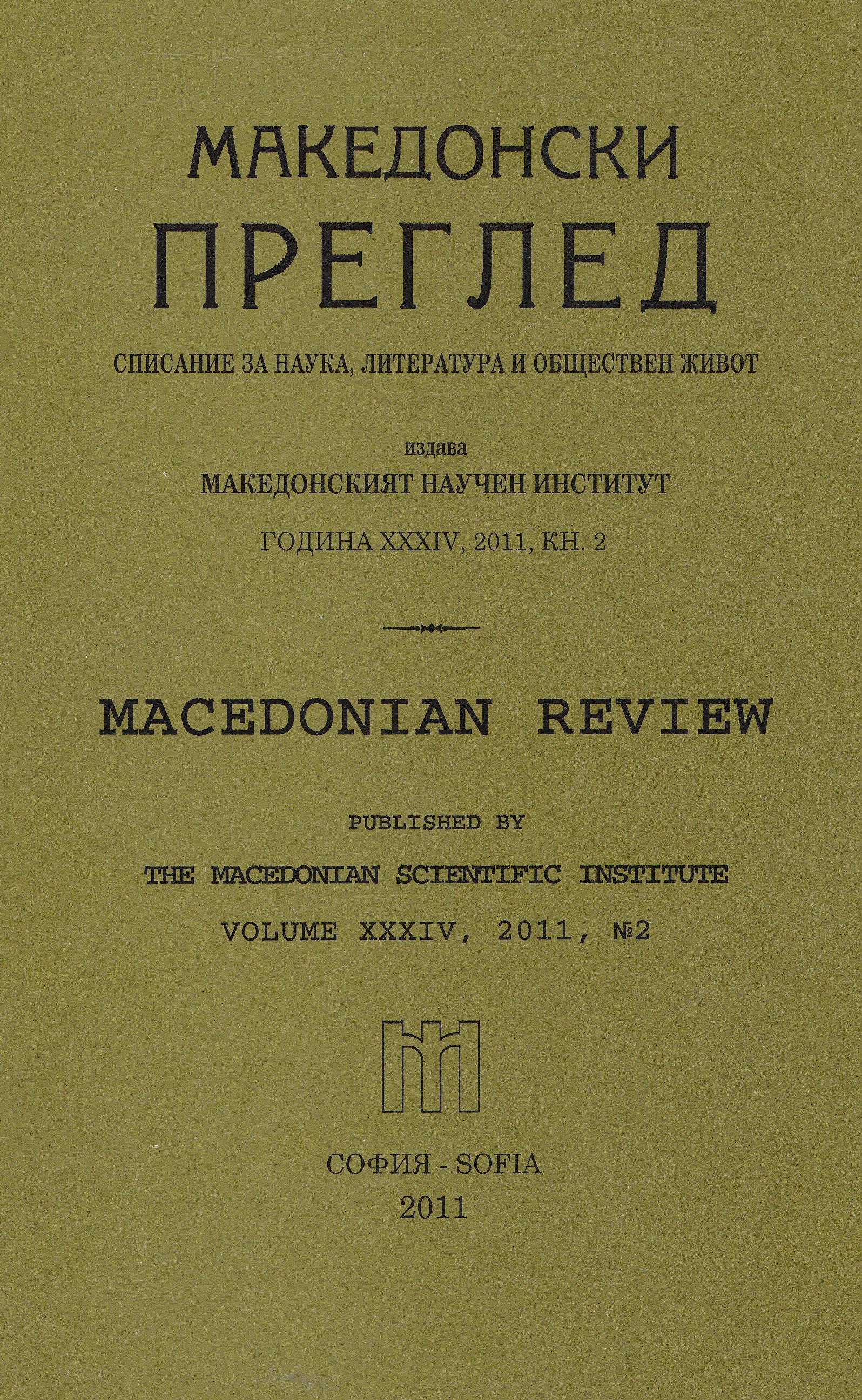

![Гуринова, О. Н. Македонский вопрос в международных отношениях 1913 – 1920 гг. Харьков, 2015 [Gurinova, O. N. The Macedonian question in international relations 1913-1920, Kharkiv, 2015]](/api/image/getissuecoverimage?id=picture_2017_35386.jpg)
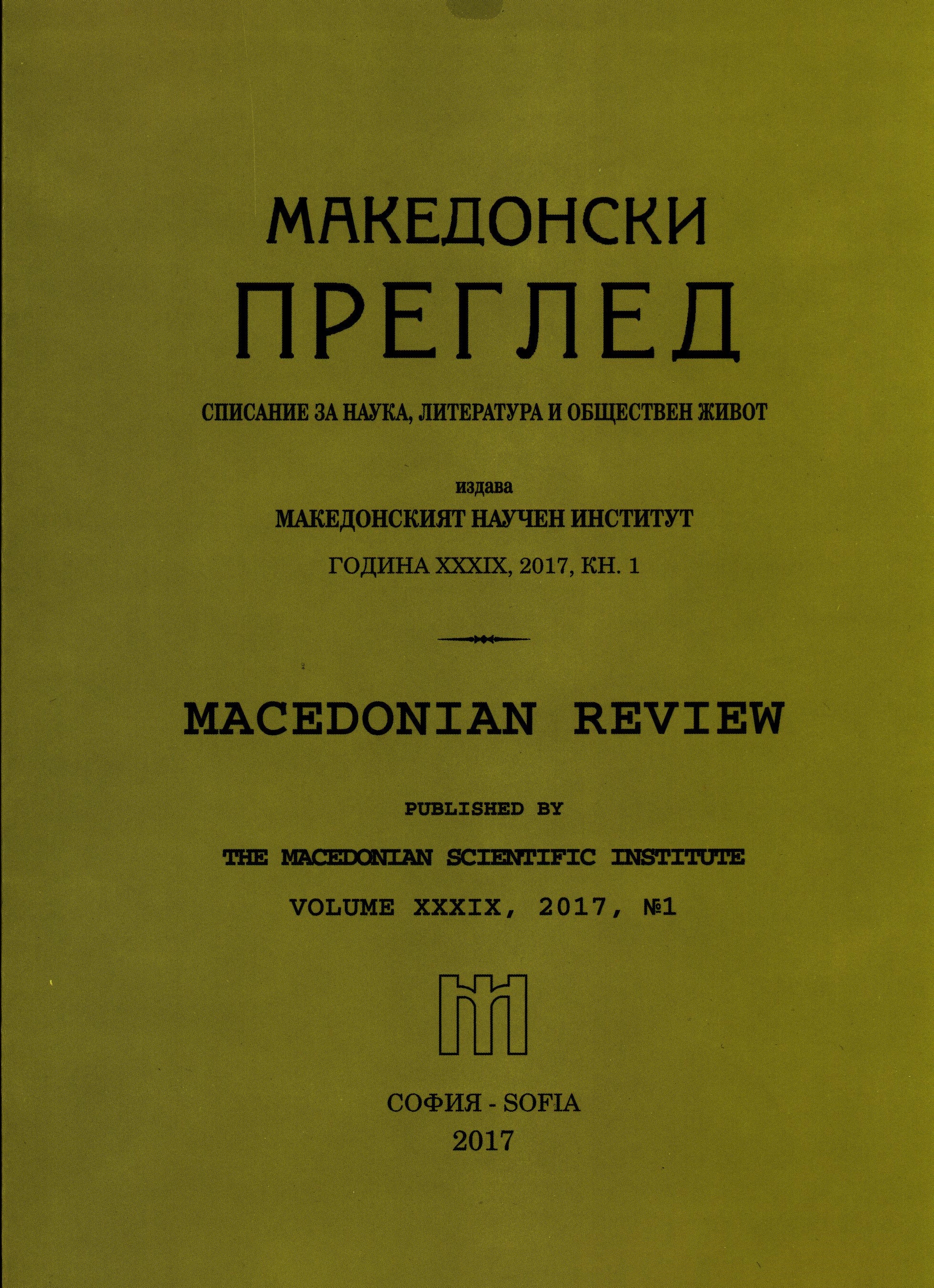
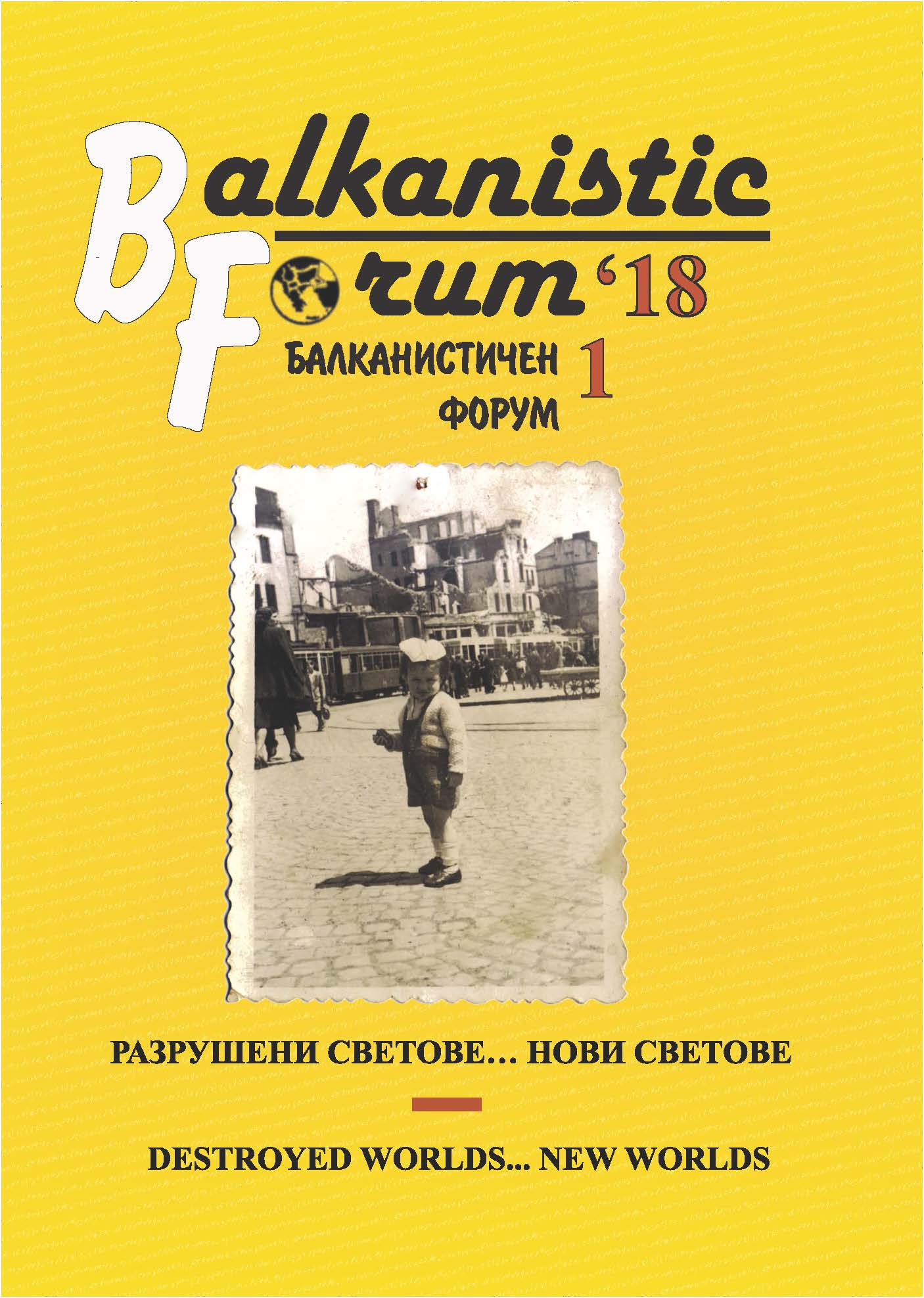
The historical tractate of Petar Bogdan (Petrus Deodatus), written in the Seventeenth century, has been considered to be lost, although a small fragment of the text was known in a edition by the Croatian priest and philologist Ivan Pastrić. The author found the original manuscript of the tractate which contains near 200 pages. The whole text is composed of Prefece, seventy chapters, some documents and Epilogue. The text of the tractate will be published soon.
More...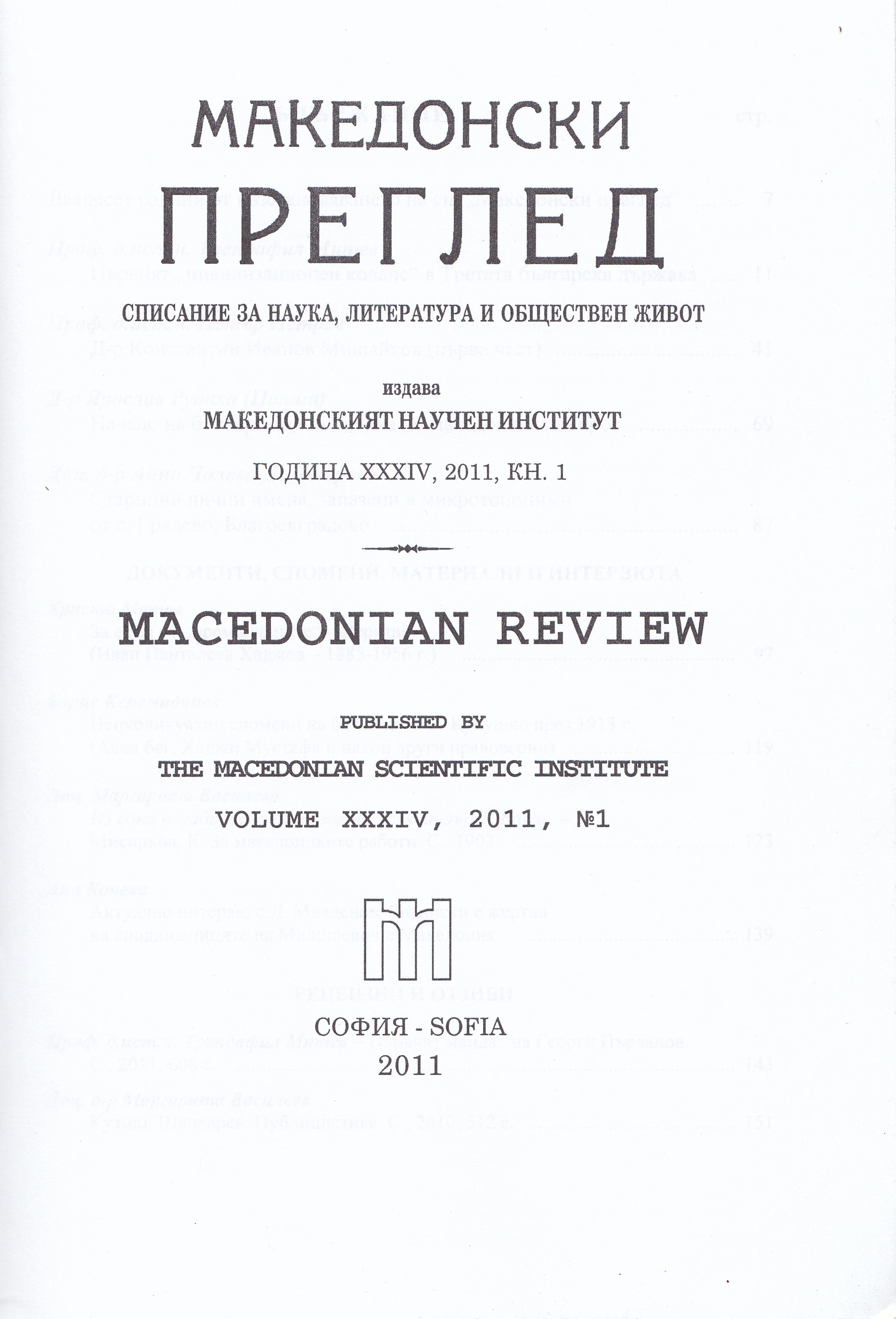
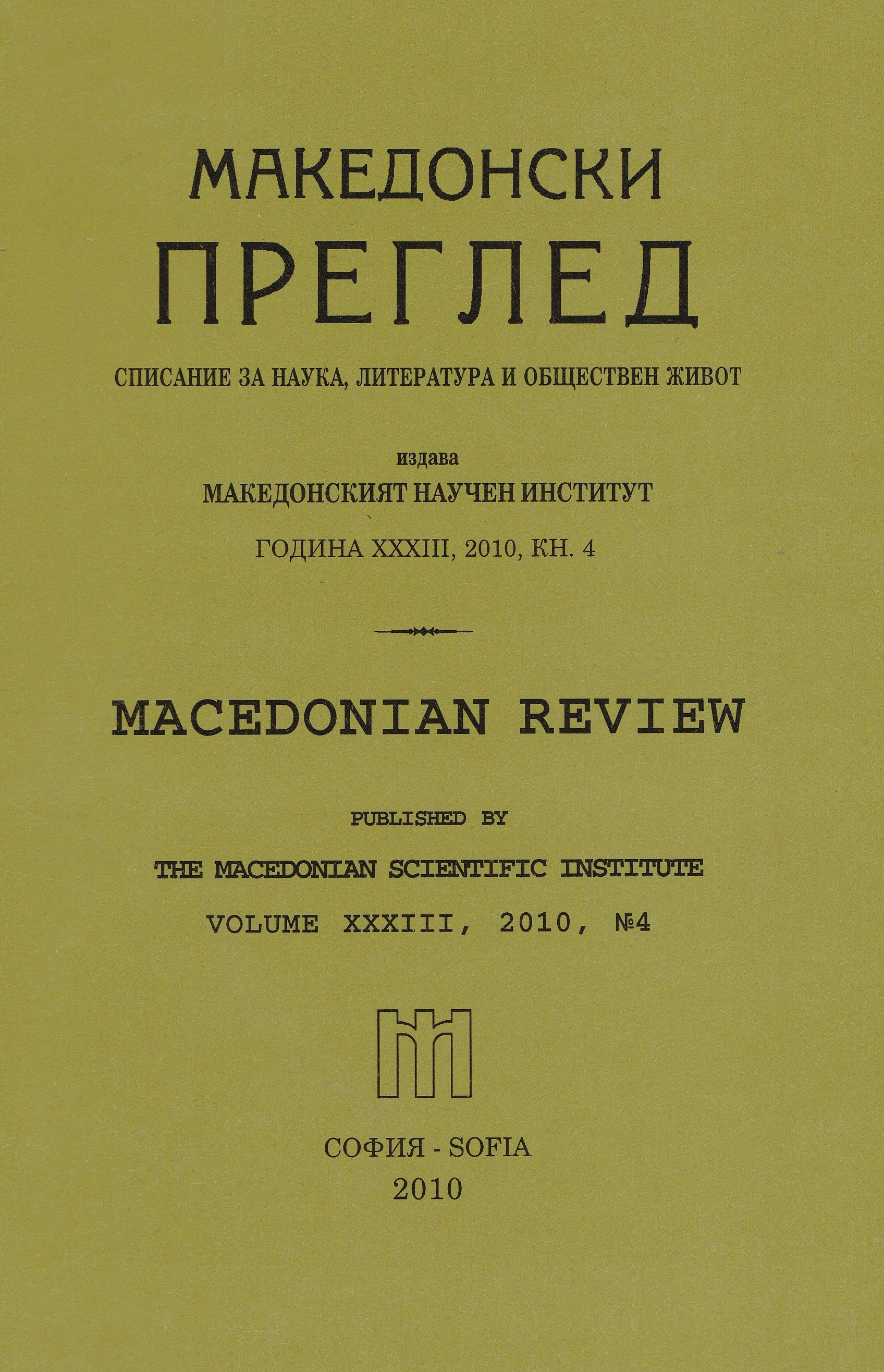
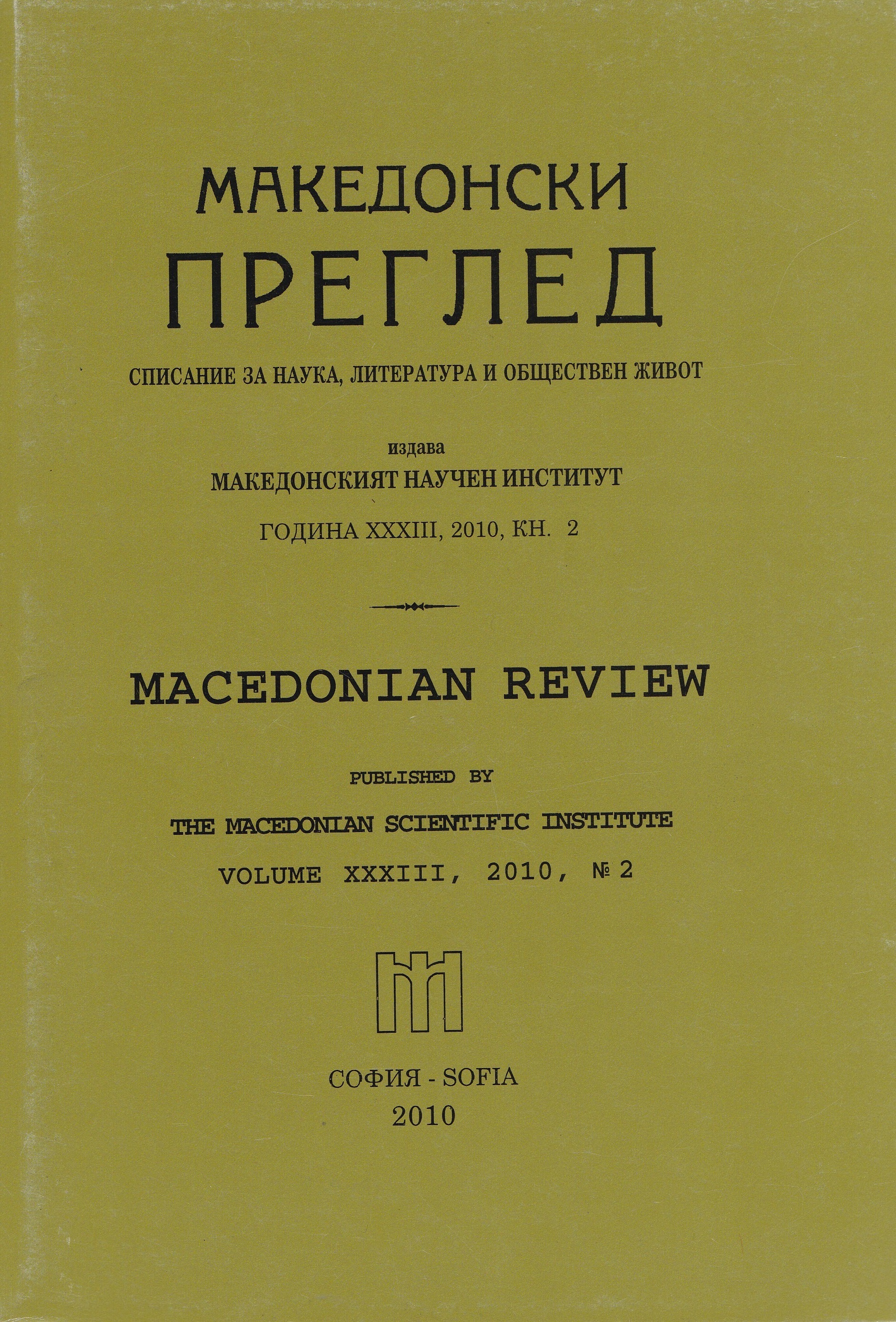
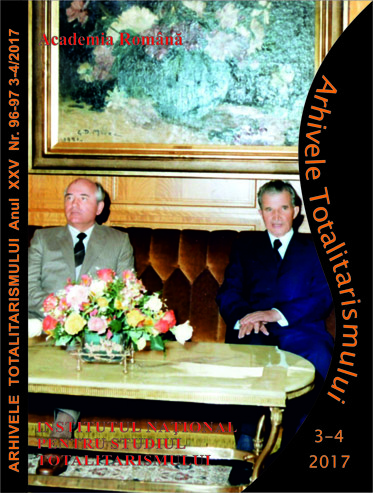
The Romanian paediatrician Emil Căpraru had been sentenced by the communist regime to20 years of forced labour and 8 years loss of civil rights on the grounds of „machination against the social order”. In fact, as a medical student, and then as a lecturer and doctor, he helped many students and doctors persecuted by the Securitate. He spent 6 years in prison(1958-1964), being released under the terms of Decree 411 of June 24, 1964.
More...
The paper aims to present the personality of an important icon of Soviet Union, V.M.Molotov, Old Bolshevik, Leading figure of Soviet Government and, of course, the Soviet negotiator with Hitler. The interviews Molotov gave to Feliks Chuev show a different perspective not only on that important figure but also on the political environment during the Soviet Era, on Stalin and Party Nomenclature. Molotov presents himself as a determined person, devoted to his beloved cause, devoted to Lenin and Stalin policy and way they showed to the Soviet people. From the very beginning, he shows himself a trusted party member, with strong beliefs and convictions, with no regrets about the severe decisions they made during the Soviet reign.
More...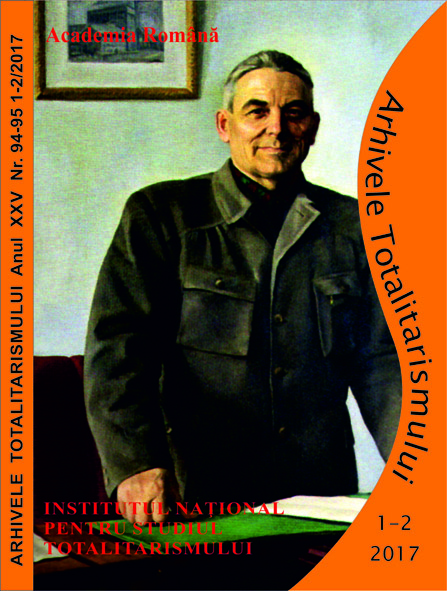
The article presents the story of the returning from prison of former zek Radu Ciuceanu in September 1963. Having been released from Gherla penitentiary after 15 years in prisonRadu Ciuceanu recounts the adventures of the road back home and the shock of re-entering social life.
More...
Father Ion Parțac (1927-1996) was one of those Romanian Catholic priests who, during the terrible persecution that characterized the totalitarian regimes of Gheorghiu-Dej and Ceaușescu, chose to join the anti-communist resistance through faith, rejecting all collaboration with atheist regime. He preferred the status of an outcast, besides that of a political inmate. He lived in an age when being a Catholic was a criminal act punishable by imprisonment
More...
This is a review of William E. Leuchtenburg book's The American President. From Teddy Roosevelt to Bill Clinton, Oxford University Press, New York, 2015, 886 p.
More...
The paper aims to contributing to a better understanding of the complex political situation in the central part of Europe where two major forces are now opposed. One is the Russian Federation and the other consists of European countries, such as Romania a member of the EU. The situation had been generated in 1792 when Russia got a common border on Dniester river with the Romanian medieval state of Moldova. In 1812 after a war with Turkey it occupied half of Moldova and called it Bessarabia. This is presently the Republic of Moldova. Now a part of it proclaimed itself an independent state called the Moldavian Dniester Republic (Transnistria). It is recognized by no other country but Russia considering it a component part of the Russian Federation. Moreover, its army of Russian soldiers crossed illegally the Dniester into the Republic of Moldova occupying more territory and thus creating a dangerous precedent.
More...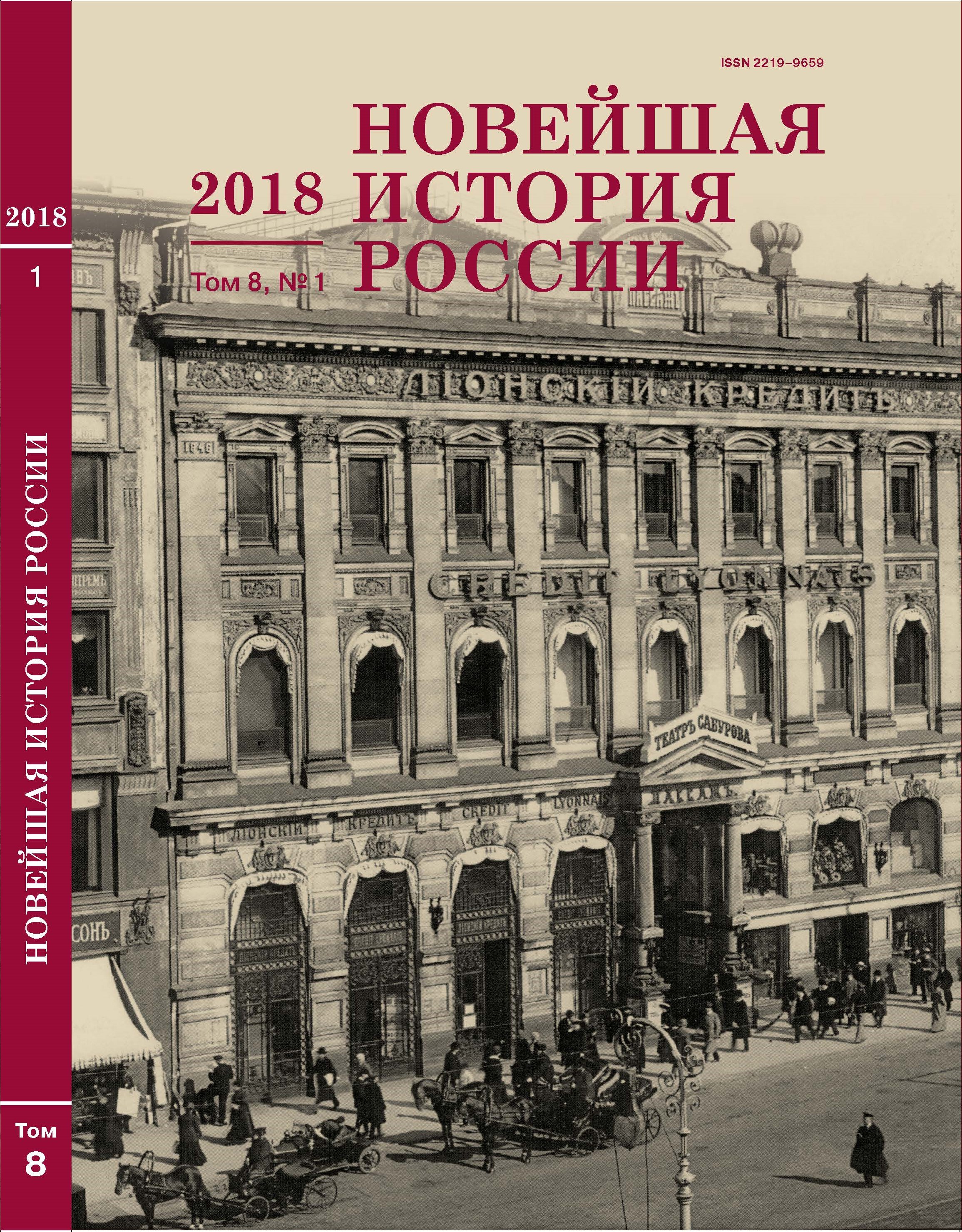
With the beginning of the First World War, the Polish question again declared itself, under the sign of which the Russian Empire was for more than a century, but the idea of which in the Russian society was most uncertain. To clarify the situation with regard to the past of Poland and the Polish question, the prominent Russian historian N. I. Kareev took up hid pen. In his article of 1915, he outlined the circumstances in which the Polish ques- tion had originated, evolved and manifested itself over the centuries. How N. I. Kareev presented to compatriots, the Polish question, shows that his interpretation of the Polish question largely converges with the interpretation of S. M. Soloviev, confi in the fact that “the Polish question was born along with Russia”. Kareev not only sup-ported the Russian historiographical tradition, but also corrected it. On the one hand, he shared the semi-offi point of view on the partition of Poland, but on the other, stressed the predominance of geopolitical aspects in the process, almost ignoring romantic references to the ethno-religious motives, which are often heard in Russian historiography and journalism of XIX century This article N. I. Kareev, who has always advocated reconciliation between Russians and Poles, can be regarded as an attempt to acquaint the Russian reader with Poland, which, according to one of them, there are currently terra incognita.
More...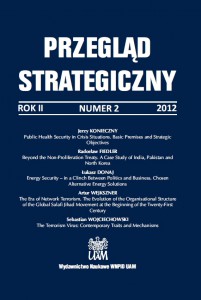
After 1945 the most important everyday mission performed on the border between the cold and the hot war was, however, the one fulfilled by forces which belonged to a less visible but still extremely important formation – namely the Intelligence Services, Counter-intelligence Services and, above all, their agents and analysts. While a cold-war tension was rising and the two German states were built, a territory of the current Federal Republic of Germany turned into one of the biggest fronts of world espionage. An experience which stems from the observation of the activities of the Intelligence Services operating on the German territory indicate, that every state in the world, which is a contact point for possible confrontation of stronger subjects, becomes an object of focus for many Intelligence Services. Therefore, it is important to, apart from developing partner relations with other countries, strive for the best possible protection of the country’s own interest.
More...